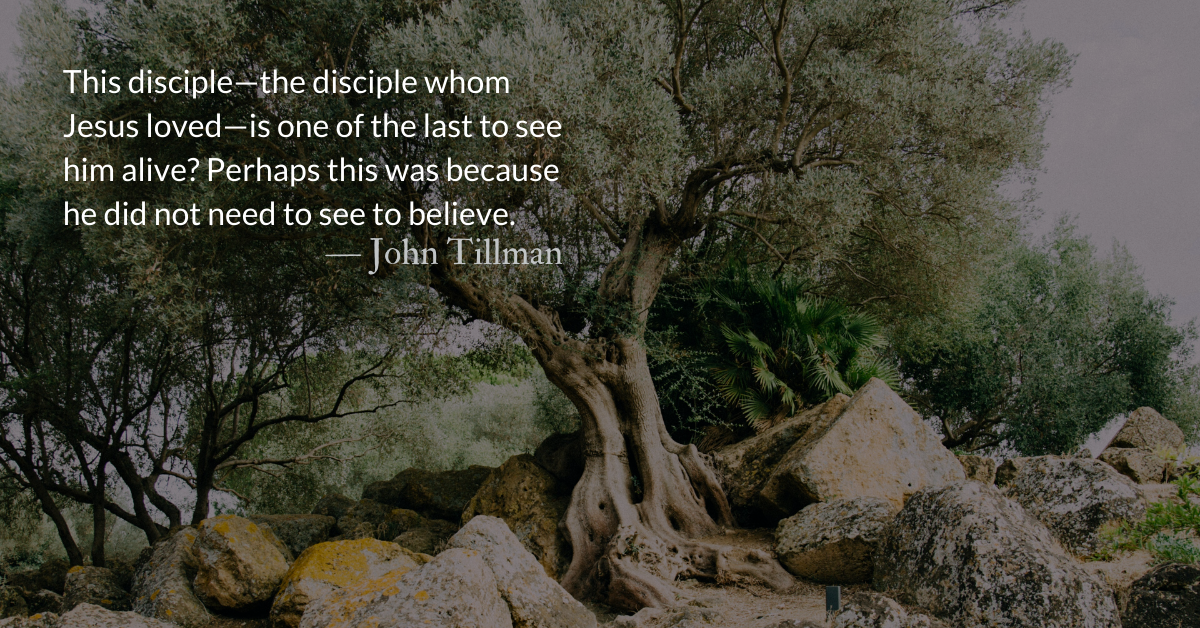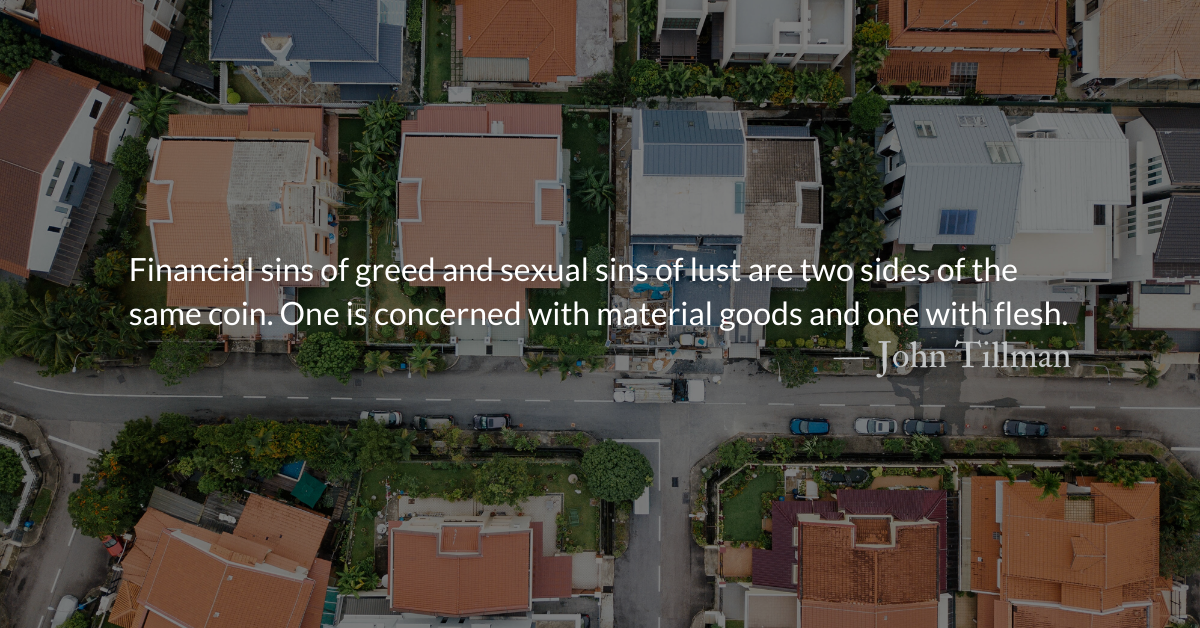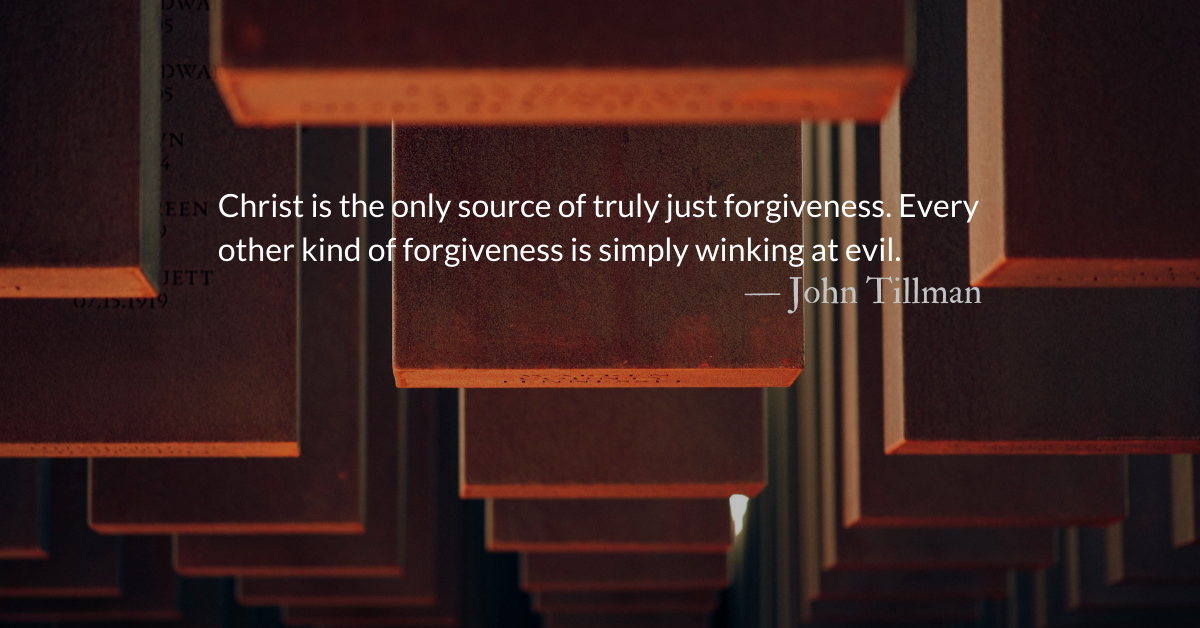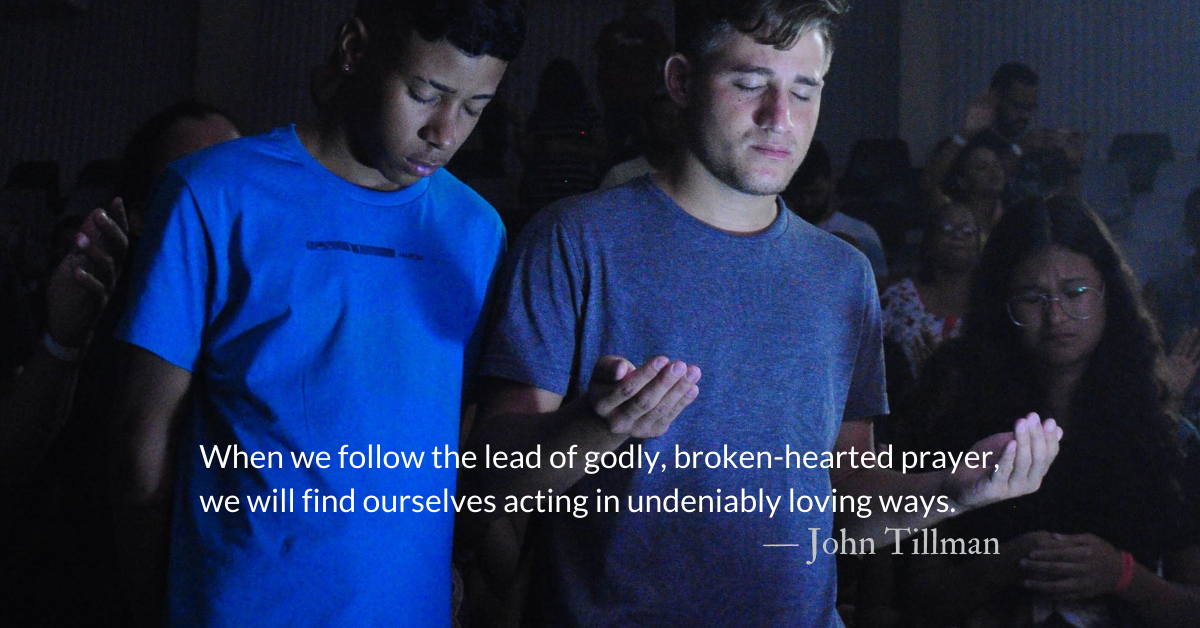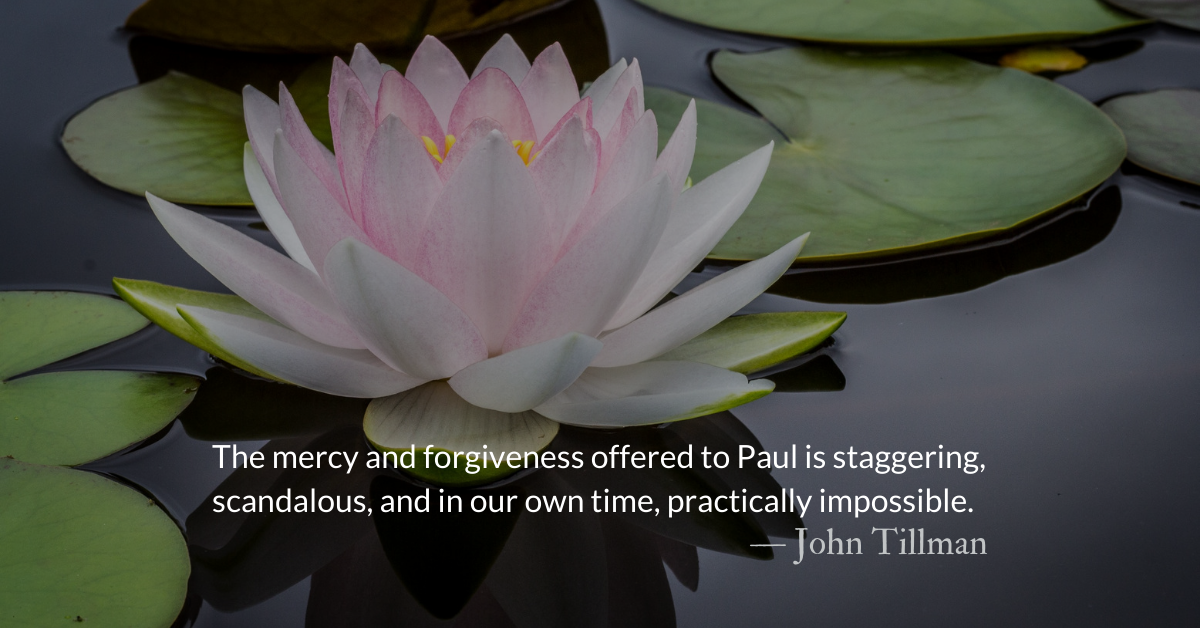Scripture Focus: John 20.3-9
3 So Peter and the other disciple started for the tomb. 4 Both were running, but the other disciple outran Peter and reached the tomb first. 5 He bent over and looked in at the strips of linen lying there but did not go in. 6 Then Simon Peter came along behind him and went straight into the tomb. He saw the strips of linen lying there, 7 as well as the cloth that had been wrapped around Jesus’ head. The cloth was still lying in its place, separate from the linen. 8 Finally the other disciple, who had reached the tomb first, also went inside. He saw and believed. 9 (They still did not understand from Scripture that Jesus had to rise from the dead.)
1 Timothy 3.16
Beyond all question, the mystery from which true godliness springs is great:
He appeared in the flesh,
was vindicated by the Spirit,
was seen by angels,
was preached among the nations,
was believed on in the world,
was taken up in glory.
Reflection: First to Believe Without Seeing—Resurrection Appearances
By John Tillman
Another “first” to note in the resurrection appearances of Jesus, is the first person to believe that Jesus was resurrected without seeing him.
After appearing first to the women and specifically to Mary Magdalene, Jesus appears to Peter, to Cleopas and an unnamed disciple (possibly Cleopas’s wife) on the Emmaus road, then he appears to some of the gathered disciples, and then again to the group of disciples when Thomas joins them. As far as we know, John did not see Jesus in the flesh until the first appearance of Jesus to the gathered disciples in the upper room.
John is the disciple who seemed closer to Jesus than any other. He is the one they sent to Jesus to ask questions they were afraid to ask. (John 13.22-24) He was the one who, along with his brother, James, expected to be closest to Jesus in his kingdom. (Mark 10.35-37) This was the disciple who wrote most passionately and poetically about the life and divinity of Jesus. (John 1.1-14) It was John who remembered and recorded the longest, most intimate and meaningful discourses of Jesus’ teaching, his struggles, and his demonstrations of love to the disciples. This disciple—the disciple whom Jesus loved—is one of the last to see him alive?
Perhaps this was because he did not need to see to believe. John reports that he believed after seeing the empty tomb with its well-folded graveclothes, but before seeing Jesus alive.
As Paul writes to Timothy, and to the Corinthian church (1 Corinthians 15.3-8), Jesus did indeed appear “in the flesh,” not just to a few, but to many. This was an important distinction to dispel ideas about a “ghostly” Jesus and to dispute gnostic accounts that never believed Jesus had a physical body to begin with.
But John leads the way for us, being the first to believe without seeing him. As Jesus tells Thomas, “blessed are those who have not seen and yet have believed..” (John 20.29)
There are real and tangible reasons and evidence to lead us toward belief—for John, the condition of the empty tomb or for us, the testimony of the early eyewitnesses—but the final line of belief can only be stepped over in faith.
*For information on the historical evidence of the consistency and reliability of the gospel message, see this video from scholar, Gary Habermas — 1:20
Divine Hours Prayer: The Call to Prayer
Come and listen, all you who fear God, and I will tell you what he has done for me. — Psalm 66.14
– Divine Hours prayers from The Divine Hours: Prayers for Springtime by Phyllis Tickle.
Today’s Readings
Ecclesiastes 1 (Listen -2:21)
1 Timothy 3 (Listen -2:10)
Read more about In the Face of Grief
The resurrected Christ seems to have a special preference for appearing to the grieving. Why then do we seem to assume that this stopped when he ascended?
Read more about Further up, Further in
The grave is open, that we may see He is risen.
The veil is open, that we may follow our High Priest.
Hell is open if we will but make for the exit.
Heaven is open, if we will but enter.


